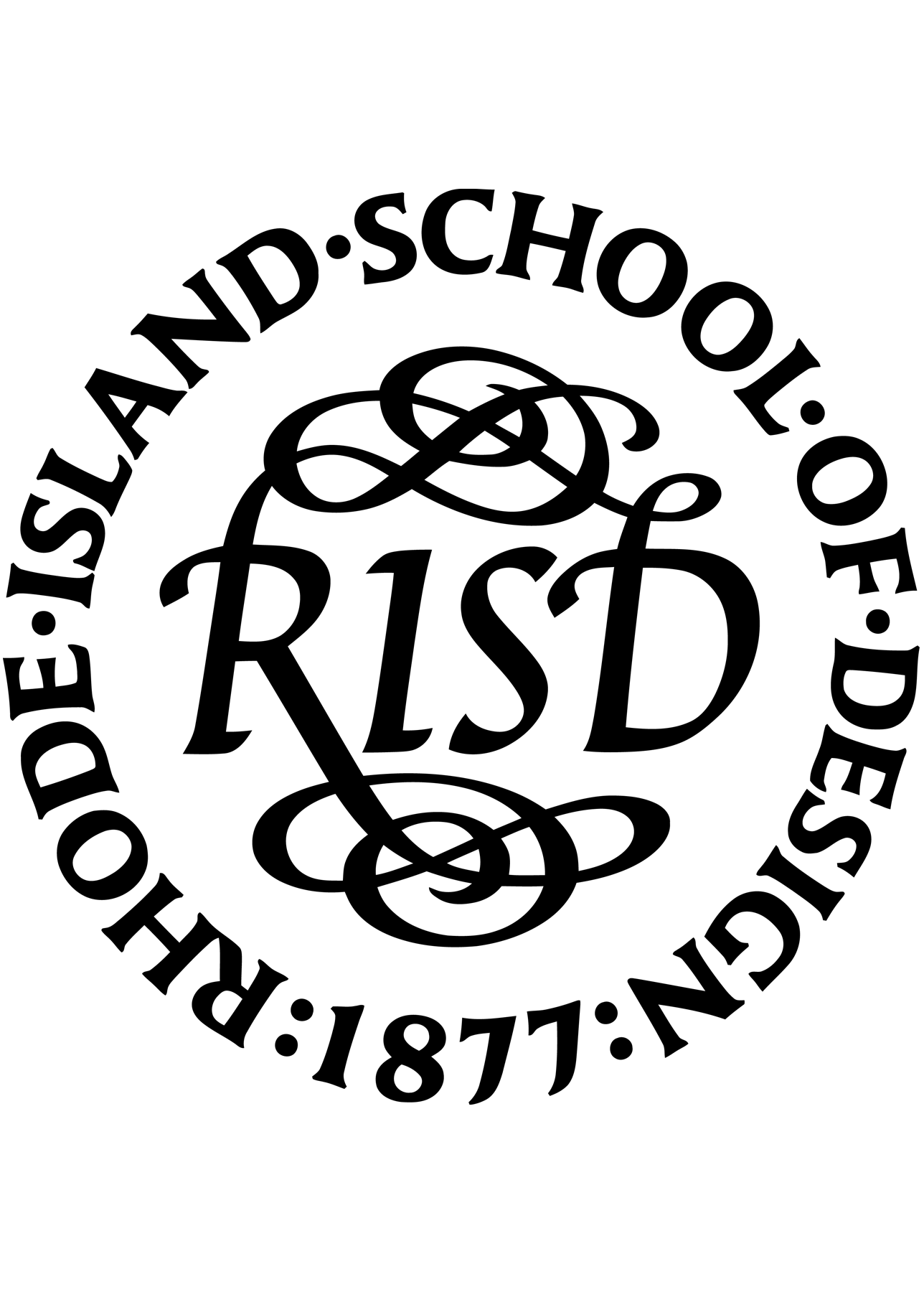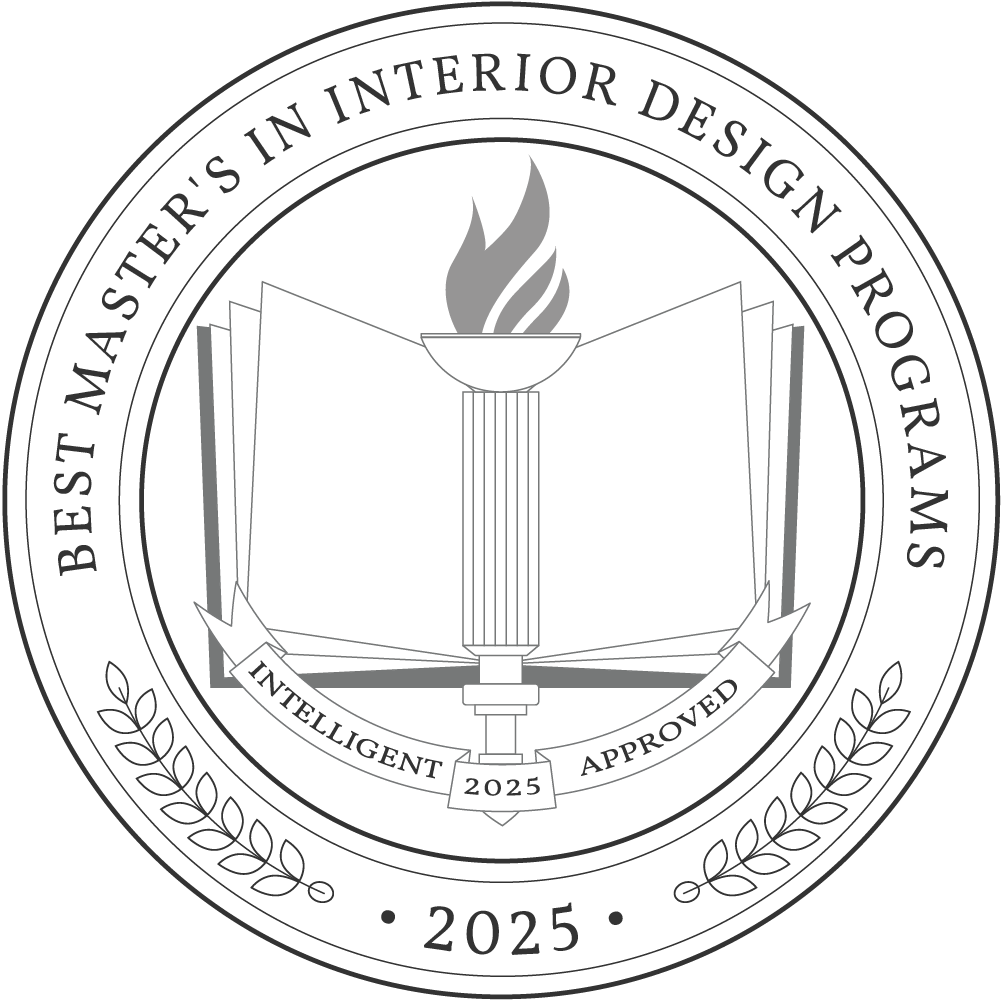A master’s degree in interior design teaches students advanced techniques and theories of interior architecture and design, focusing on research, concept, design development, digital media, and innovative ideas. Graduates advance to positions as senior interior designers, interior architects, design project managers, or art directors in interior design studios, architecture, real estate, and design consultancy firms.
The median annual salary for interior designers is $62,510. Wages vary depending on the industry, location, and level of experience. The top ten percent of interior designers earn more than $101,960 annually, while the bottom 10 percent earn less than $37,730. With the field’s highly competitive nature, interior designers with a master’s degree have a better chance of being hired for high-earning positions than those with a bachelor’s degree.
Master’s programs in interior design require between 30 and 87 credits for graduation. Most students complete the degree in two years of full-time study. Some schools offer accelerated or part-time schedules, where students can complete the degree at their preferred pace. The average annual cost for master’s programs is $19,749, but it will depend on the program, school, and student housing requirements.
Why Trust Us
The Intelligent.com Higher Education Team is dedicated to providing students with independent, equitable school and program rankings and well-researched resources. Our expert-driven articles cover topics related to online colleges and programs, paying for school, and career outlooks. We use data from the U.S. Department of Education’s College Scorecard, the National Center for Education Statistics, and other reputable educational and professional organizations. Our academic advisory team reviews content and verifies accuracy throughout the year for the most current information. Partnerships do not influence rankings or editorial decisions.
- Analyzed over 2,000 national, accredited, and nonprofit colleges and universities
- 800+ rankings pages are reviewed and updated yearly
- Content is informed by reputable sources, surveys, and interviews with academic advisors and other experts
- Over 100 data points are reviewed for accuracy and quality throughout the year, including sources
How we rank schools
Our list features the best Interior Design degree programs at top colleges nationwide. Each school featured is a nonprofit, accredited institution — either public or private — with a high standard of academic quality for post-secondary institutions.
We evaluated each school’s program on tuition costs, admission, retention and graduation rates, faculty, reputation, and the student resources provided for online students. We collected data from trusted sources like the National Center for Education Statistics, individual school and program websites, school admissions counselors, and other data sources. Then, we calculated the Intelligent Score on a scale of 0 to 100 based on the following criterion:
Academic Quality:
- Admission rate versus enrollment rate
- Retention rate of students who return after year one
- Accreditation status (regional and programmatic)
- Nonprofit status, both private and public institutions
Graduation Rate
- Overall graduation rate
- Total number of currently enrolled students, including diversity metrics
- Student-to-faculty ratio
Cost and ROI
- In-state and out-of-state per-credit tuition rates and fees
- Required credits to graduate
- Earning potential after graduation
- Availability of federal student loans, scholarships, and other financial aid options
Student Resources
- Available student services for online-only and hybrid programs
- On-campus amenities like tutoring centers and the number of libraries
Read more about our ranking methodology.
Best 17 Accredited Master's in Interior Design Degree Programs
FiltersInstitution Type
Status
- Intelligent Score
- Alphabetically By University Name
- Acceptance Rate
- Enrollment
- In-state Graduate Tuition
- Out-of-state Graduate Tuition
- In-state Undergraduate Tuition
- Out-of-state Undergraduate Tuition

Marymount University
Intelligent Score: 98.50In-state: $33,200
Out-of-state: $33,200
In-state: $19,620
Out-of-state: $19,620
SAT: 970-1170
ACT: 20-28
$1,275
On-Campus
Council for Interior Design Accreditation
30-36

Pratt Institute
Intelligent Score: 96.57In-state: $51,754
Out-of-state: $51,754
In-state: $33,246
Out-of-state: $33,246
SAT: 1120-1340
ACT: 25-30
$2,135
On-Campus
Middle States Commission on Higher Education
60

Boston Architectural College
Intelligent Score: 96.13In-state: $42,544
Out-of-state: $42,544
In-state: $45,240
Out-of-state: $45,240
SAT: Not Required
ACT: Not Required
$1,380
On-Campus, Online
Council for Interior Design Accreditation
84

UK College of Design
Intelligent Score: 96.03In-state: $11,135
Out-of-state: $29,945
In-state: $12,189
Out-of-state: $12,189
SAT: 1070-1280
ACT: 22-29
Resident: $783
Non-Resident: $1,957
On-Campus
Southern Association of Colleges and Schools Commission on Colleges
30

Rhode Island School of Design
Intelligent Score: 95.14In-state: $53,820
Out-of-state: $53,820
In-state: $53,820
Out-of-state: $53,820
SAT: 1250-1470
ACT: 27-32
$218 - $261
On-Campus
New England Commission of Higher Education
45-75

University of Texas at Austin
Intelligent Score: 95.06In-state: $11,448
Out-of-state: $40,032
In-state: $12,028
Out-of-state: $12,028
SAT: 1210-1470
ACT: 26-33
Resident: $1,412
Non-Resident: $2,030
On-Campus
Council for Interior Design Accreditation
48-82

Illinois State University
Intelligent Score: 91.12In-state: $10,741
Out-of-state: $19,904
In-state: $7,892
Out-of-state: $7,892
SAT: 1020-1220
ACT: 21-26
In-State: $422
Out-of-State: $877
On-Campus
Higher Learning Commission
30

The New School
Intelligent Score: 90.98In-state: $49,820
Out-of-state: $49,820
In-state: $47,176
Out-of-state: $47,176
SAT: 1140-1360
ACT: 26-30
$2,478
On-Campus
National Association of Schools of Art and Design
60

UF College of Design, Construction and Planning
Intelligent Score: 90.12In-state: $4,477
Out-of-state: $25,694
In-state: $10,770
Out-of-state: $10,770
SAT: 1290-1460
ACT: 29-33
Resident: $530
Non-Resident: $1,255
On-Campus
Southern Association of Colleges and Schools Commission on Colleges
36-79

FIU Interior Architecture
Intelligent Score: 89.78In-state: $4,721
Out-of-state: $16,529
In-state: $8,912
Out-of-state: $8,912
SAT: 1110-1260
ACT: 23-29
In-State: $455
Out-of-State: $1,001
On-Campus
Council for Interior Design Accreditation
36

Iowa State University
Intelligent Score: 87.91In-state: $8,042
Out-of-state: $23,230
In-state: $9,758
Out-of-state: $9,758
SAT: 1010-1310
ACT: 21-28
Resident: $611
Non-Resident: $1,548
On-Campus
National Association of Schools of Art and Design
34

Chatham University
Intelligent Score: 87.89In-state: $38,482
Out-of-state: $38,482
In-state: $18,306
Out-of-state: $18,306
SAT: N/A
ACT: N/A
$1,121
On-Campus, Online
Council for Interior Design Accreditation
54

Savannah College of Art and Design
Intelligent Score: 86.33In-state: $37,575
Out-of-state: $37,575
In-state: $38,475
Out-of-state: $38,475
SAT: N/A
ACT: N/A
$936
On-Campus, Online
Southern Association of Colleges and Schools Commission on Colleges
45

New York School of Interior Design
Intelligent Score: 86.19In-state: $71,950
Out-of-state: $71,950
In-state: $32,600
Out-of-state: $32,600
SAT: 1050-1300
ACT: 19-23
$1,470
On-Campus
Council for Interior Design Accreditation
90

GW Corcoran School of the Arts & Design
Intelligent Score: 85.71In-state: $55,961
Out-of-state: $55,961
In-state: $31,770
Out-of-state: $31,770
SAT: 1270-1450
ACT: 30-33
$2,020
On-Campus
Council for Interior Design Accreditation
30-60

School of the Art Institute of Chicago
Intelligent Score: 84.48In-state: $75,450
Out-of-state: $75,450
In-state: $76,170
Out-of-state: $76,170
SAT: 1120-1340
ACT: 22-28
$1,926
On-Campus
National Architectural Accrediting Board
60-90

Suffolk University
Intelligent Score: 83.90In-state: $41,242
Out-of-state: $41,242
In-state: $39,914
Out-of-state: $39,914
SAT: 1010-1203
ACT: 21-26
$1,429
On-Campus
Council for Interior Design Accreditation
30-61
How to Choose a Master’s in Interior Design Program
Choose your area of study
There are several master’s in interior design degrees: Master of Arts, Master of Science, Master of Fine Arts, or Master of Design. The best degree option will depend on the student’s career goals and specialization interests.
- Master of Arts: A Master of Arts degree focuses on humanities and liberal arts, with topics often concentrated on art, linguistics, and communications. The curriculum is usually heavily theory-based and provides students with a comprehensive understanding of related topics.
- Master of Science: A Master of Science degree often provides a technical and mathematical focus, which is best for students with strong logical or mathematical skills who want to enter the architecture or engineering industries.
- Master of Fine Arts: Most interior design programs are offered as a Master of Fine Arts degree. This degree is best for students who thrive in hands-on learning environments, as it’s often heavily focused on building practical skills. It provides a detailed focus on the industry and often holds more weight for employers.
- Master of Design: A Master of Design degree explores conceptual and theoretical areas of design, including visual communication, interaction, and the built environment. This type of degree is best for creative students who want to advance their knowledge and skills through project-based research.
Many master’s of interior design programs allow students to tailor their courses toward a particular specialization, such as design and health, interior architecture, sustainable design, emerging technology, and interactive design.
Research schools and programs
Begin the application process by researching schools and programs accredited by a recognized organization. Accreditation means that these institutions meet set educational quality standards. It will assist students in being hired, transferring credits, and receiving financial aid. The most common accreditors include the Northwest Commission on Colleges and Universities, the Southern Association of Colleges and Schools Commission on Colleges, and the Middle States Commission on Higher Education.
Some master’s of interior design programs are also programmatically accredited by the Council for Interior Design Accreditation. Programmatic accreditation ensures that the curriculum meets professional standards and will adequately prepare students for their future careers.
You can use a variety of methods to learn about prospective schools and programs, including:
- Visiting the school in person
- Exploring their websites
- Following them on social media
- Attending open houses
You can also speak with an admissions advisor or program representative to learn more about the school culture and program curriculum.
Prepare for tests and applications
Take note of the admissions deadlines and requirements when exploring programs. Gather all materials and submit them before the deadlines. Master’s in interior design programs will often require you to provide the following:
- A letter of intent
- Undergraduate transcripts
- Letters of recommendation
- A portfolio
- GRE test scores
- Proof of English language proficiency
Speak with an admissions counselor before submitting your application to ensure you meet the requirements and have the essential materials.
Select your program
When it’s time to decide, choose the school and program that best aligns with your personal and professional goals. Consider the academic parameters that will affect your success in the program, including full-time or part-time, online or in-person, or synchronous or asynchronous. Also, take note of the school’s location, housing options, program cost, and length.
If you need more guidance choosing a program, contact an academic advisor. They’ll review your options and help you make the best choice for your needs.
Determine how you’ll pay for your degree
Create a budget outlining your annual costs to determine if you can pay for the program alone or require financial assistance. Include tuition, fees, supplies, housing, transportation, and living expenses.
Visit the Free Application for Federal Student Aid (FAFSA) website and apply for financial aid, including scholarships, grants, work-study funds, and loans. If you’re currently working in the industry, speak with your employer about any tuition assistance benefits they may offer.
What Can You Expect From a Master’s in Interior Design Program?
A master’s program in interior design expands on the groundwork knowledge learned in an undergraduate program to teach students theories and design techniques required for advanced careers. Students will graduate with a thorough understanding of digital rendering, computer-aided design, animation techniques, and other industry-related skills. They will also focus on creative development, critical thinking, economic development, theorists, and cultural differences.
In-person, online, and hybrid programs are available. The type of program a student enrolls in will determine the learning methods used. However, most will use a mixture of lectures, exams, labs, projects, field trips, and digital applications. Many programs conclude with a practicum and a detailed project demonstrating the skills they’ve developed in the program.
Students with a passion for design should also check out graphic design programs, as this may be a better fit for your personal interests and career goals.
Potential courses you’ll take in a master’s in interior design program
- Interior Design Theory and Criticism. Students will examine the theories architects and interior designers use to express and conceptualize their work. They will also discuss the history of interior design and its role in the future.
- Contemporary Issues in Interior Design. This course covers the critical, practical, and aesthetic issues related to interior design. Students will develop their critical thinking and design problem-solving skills, participate in group research projects, and prepare a presentation for discussion.
- Environmental Psychology for Interior Design. Students will examine the social, behavioral, cultural, and ecological issues of the built environment that impact human behavior. Key topics include social and cultural issues, gender, health, and well-being.
- Emerging Interior Materials. This course will explore the emerging materials used in interior design. Students will study these new interior materials’ composition, construction, and application through group discussions, projects, presentations, and field trips.
Master’s in Interior Design Degree Frequently Asked Questions
How do I apply to a master's in interior design degree program?
To apply for a master’s program in interior design, begin by visiting the prospective program’s website and reviewing the application requirements. The required materials will vary by school — however, most will request your undergraduate transcripts, a letter of intent, letters of recommendation, GRE scores, and proof of English language proficiency. You will also likely be required to submit a portfolio highlighting your previous work. Before submitting your application, speak with an admissions advisor to review the requirements and admissions process.
How much does a master's in interior design degree cost?
The average annual tuition and fees for a master’s degree in interior design is $19,749. The total amount will vary by school and program and depend on the student’s supplies, housing, transportation, and living expenses. If students enroll in an online or part-time program, they may see this price decrease.
How long does it take to earn a master's in interior design degree?
Most master’s in interior design programs take two years of full-time study, but completion time will depend on the credits required for graduation — most programs consist of 30 to 87 credits. Students who opt for part-time or asynchronous studies will likely take longer to complete the program as they work independently.

